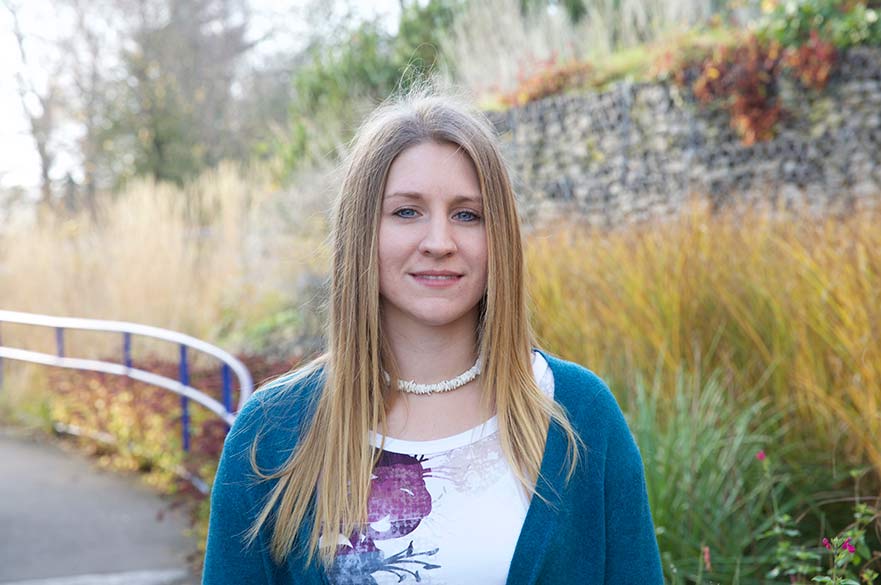Role
Kat Hamill (née Fingland) is a Senior Lecturer in Zoology for the School of Animal, Rural & Environmental Sciences. Kat is also the Course Leader for the BSc (Hons) Zoology course.
Career overview
Prior to joining NTU, Kat worked as a Project Officer for the Scottish Wildlife Trust on their Saving Scotland's Red Squirrels project. Kat also worked as a Field Research Assistant for the James Hutton Institute, assessing mountain hare abundance in the Cairngorms in Scotland. Kat has a BSc (Hons) in Zoology from the University of Southampton, a MSc in Wildlife Management & Conservation from the University of Reading, and completed her PhD at NTU researching urban ecology of red squirrels using the town of Formby, Merseyside, as a study site.
Research areas
Kat’s PhD research focussed on the urban ecology of red squirrels; specifically how red squirrels use the urban environment and how this influences their ecology, with the aim of contributing to the conservation of this endangered native species.
Opportunities to carry out postgraduate research towards an MPhil/PhD exist within the school of Agriculture, Rural and Environmental Sciences, and further information may be obtained from the NTU Doctoral School.
Publications
Regional-dependent tolerance to humans: A multi-country comparison of horizontal and vertical escape distance in arboreal squirrels. Uchida K, Hamill K, Wist B, et al., Landscape & Urban Planning 2025, 253: 105198.
A systematic review into the suitability of urban refugia for the Eurasian red squirrel Sciurus vulgaris. Fingland K, Ward SJ, Bates AJ, and Bremner-Harrison S, Mammal Review 2021, 52: 26-38.
The genome sequence of the eastern grey squirrel, Sciurus carolinensis Gmelin 1788. Mead D, Fingland K, Cripps R, et al., Wellcome Open Research 2020, 5: 27.
The genome sequence of the Eurasian red squirrel, Sciurus vulgaris Linnaeus 1758. Mead D, Fingland K, Cripps R, et al., Wellcome Open Research 2020, 5: 18.
Clutch abandonment as a result of brood adoption in the Red Grouse. Fingland K and Ludwig S, British Birds 2015, 108: 294-295.
Press expertise
Red squirrels
Wildlife conservation
Behavioural ecology
UN Sustainable Development Goals
Kat's teaching and research closely aligns with UN SDG 14: Life Below Water and 15: Life on Land.


